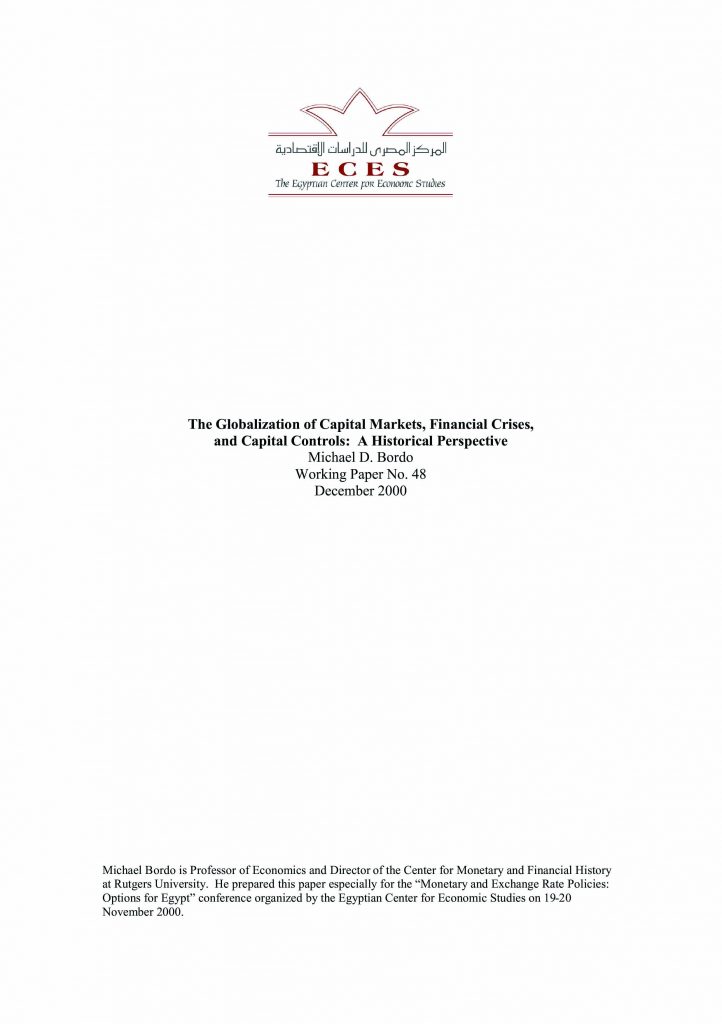Abstract:
This paper reviews globalization and financial crisis over the past 120 years. By examining the evidence on the incidence and depth of financial crises (currency crises, banking crises and twin crises) across four regimes from 1880 to the present, the study demonstrates that crises in emerging markets are more frequent today than during the golden age of financial liberalization before 1914. The higher frequency, however, is counterbalanced by a significant decrease in recovery time and output losses due to institutional innovations in information technology, increased direct foreign investment, greater numbers of lenders and borrowers, and a wider range of securities traded and sectors financed. Moreover, the study shows that access to international capital was crucial to the successful development of countries, while crises were rarely a serious detriment to development.
The paper concludes that the benefits of financial market integration are long run in nature while the costs of financial crises are short-run phenomena. The role for policy is to provide an environment for markets to work efficiently and to allow private capital flows to seek their best use in an unfettered manner.

